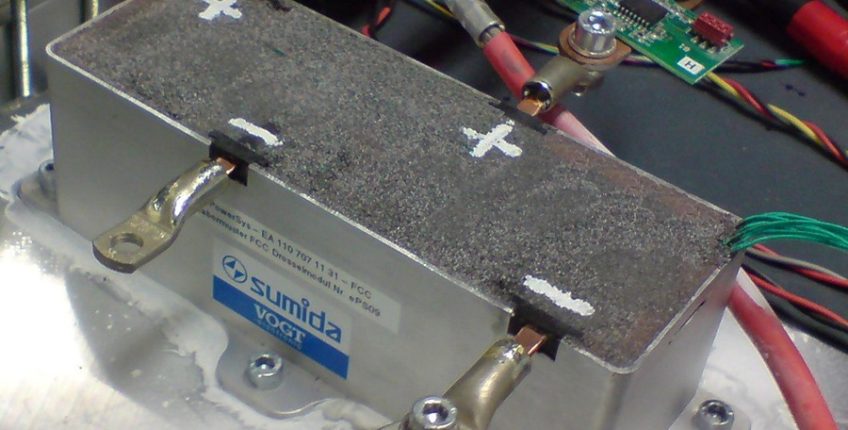Battery-powered electric cars, fuel cell and hybrid vehicles share some common components that are needed for the high-voltage circuitry. Finding ways to exploit these potential synergies in the power electronics could be a key factor in further development, as multiple-use components could be manufactured in larger numbers and therefore most cost-effectively in future mass vehicle production. The aim of this project is to analyse and assess the power electronics in terms of modular construction in order to ultimately be able to use this flexibly in electric drive concepts.
It is not just »electric« vehicles that are electric. Fuel cell vehicles are as well, as in addition to the fuel cell they also have a traction battery on board. To regulate the electric currents in the vehicle power system DC-to-DC converters are required. The converter box contains these voltage transformers and supplies the traction drive and all other high-voltage consumers via an intermediate circuit. Transformers are sometimes also used between battery and vehicle electrics on purely battery-powered and hybrid vehicles.
Here, only the module for the battery path is required. Using automotive development methods, the intention is to optimise this and perfect it for modular use. A key component in this regard is a high-performance inductor module that needs to be newly developed. In addition, research is being conducted into new materials and innovative combinations aimed at halving volume, weight, cost and power loss.
The result is a power electronics system that regulates energy flow with great efficiency and has been proven to work in a test vehicle. That is a significant step towards full mass production.
Funding Code
03BV128

